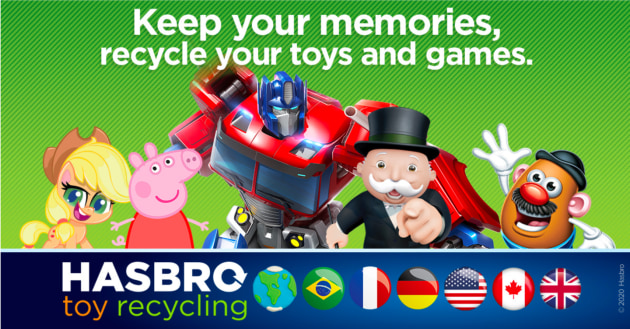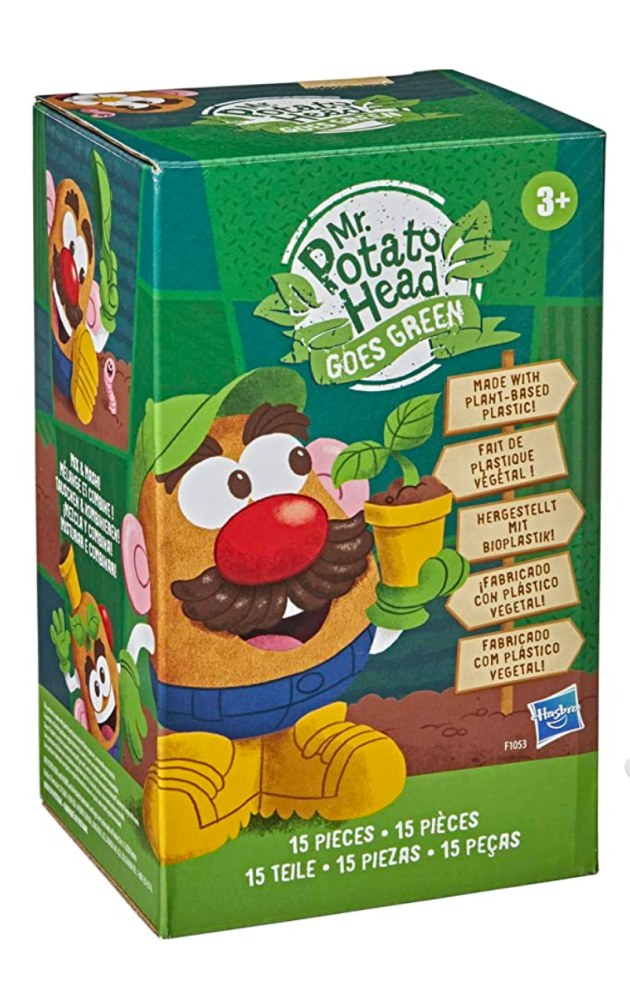Global toy company, Hasbro, plans to eliminate all plastic packaging for new products by the end of 2022, and has introduced two new products that, according to the company, will bring sustainability to family game night.
This latest development is another step in Hasbro's greater sustainability ambitions, which is a journey the company started over a decade ago with its elimination of tissue paper in shipping cartons and the polybags for instruction sheets.
And that was only the beginning.
In 2010, the wire ties that hold toys in place in the packaging were substituted with paper ties, while in 2013, PVC in the packaging was replaced with PET, which by 2016 included 40 per cent recycled content. By 2018, Hasbro began switching to bioPET.
The company has also worked to reduce packaging material and waste in e-commerce packaging and designing packaging specifically for the e-commerce channel, and in 2017, launched recycle labelling on packaging to help inform consumers on how to recycle the product packaging.
“Hasbro takes a holistic approach to sustainability and we are on track to eliminate virtually all plastic in packaging for new products by the end of 2022,” Kathrin Belliveau, Hasbro’s Chief Purpose Officer, tells PKN.
“In doing so, we estimate we will avoid using over 8.85 million kgs of plastic every year.
“We have also significantly reduced our own consumption of single-use plastic within our facilities and will continue to seek ways to reduce our environmental footprint as a company.”
Also in 2018, Hasbro, in partnership with TerraCycle, became the first toy company to offer a recycling program for its US customers. Through the program, retired toys will be recycled into items playground equipment, park benches and flowerpots.

In 2019, the program had been expanded to France, Germany, Brazil and Canada, before making its way to the UK in 2020. The company says that other countries are in the rollout plan, including Australia.
“Consumers in these countries now have the opportunity to send their well-loved Hasbro toys and games to TerraCycle, who will recycle them into materials to be used in the construction of play spaces, flowerpots, park benches, and other innovative uses,” explains Belliveau.
“Hasbro plans to continue to extend this partnership in the coming years and we see a lot of opportunity for the industry to work together on this issue.
“For the past year, we have been working with the Australian Toy Association (ATA) on a possible industry-wide solution. We recently supported the ATA’s grant request to Sustainability Victoria to help with the project.
“Hopefully, we will have some news on that in the near future.”
New ‘Green’ products launched
Hasbro has recently launched two new fully sustainable product offerings in plastic-free packages – the Mr. Potato Head Goes Green and the Monopoly Go Green.

Mr Potato Head Goes Green is the same five-inch toy everyone has become accustomed to, but will instead be made with plant-based plastic derived from sugar cane.
The packaging is plastic-free, uses FSC-certified paper, and supports responsible forestry.
Monopoly Go Green, which was launched at Walmart in December 2020, is the first fully sustainable board game released in the market.
The package, board game, game guide, money cards, and all paper content is made from 100 per cent recycled paper. The greenhouses and the dice are made of FSC-certified wood from well-managed forests, and the tokens are made with plant-based plastic derived from sugar cane.
The gameplay is also designed with a new feature that educates players to be eco-conscious by encouraging and rewarding players who ‘green up or clean up’ their properties.
“We remain committed to creating a more sustainable future for our business and our world by exploring new material options to improve the sustainability of our products and support a circular economy, while continuing to ensure their safety and durability, which is critical to our business,” Belliveau says.
“The exciting and important learnings from these launches are informing the development of future toys and games as we expand the use of recycled and renewable materials across our iconic brand portfolio.”






